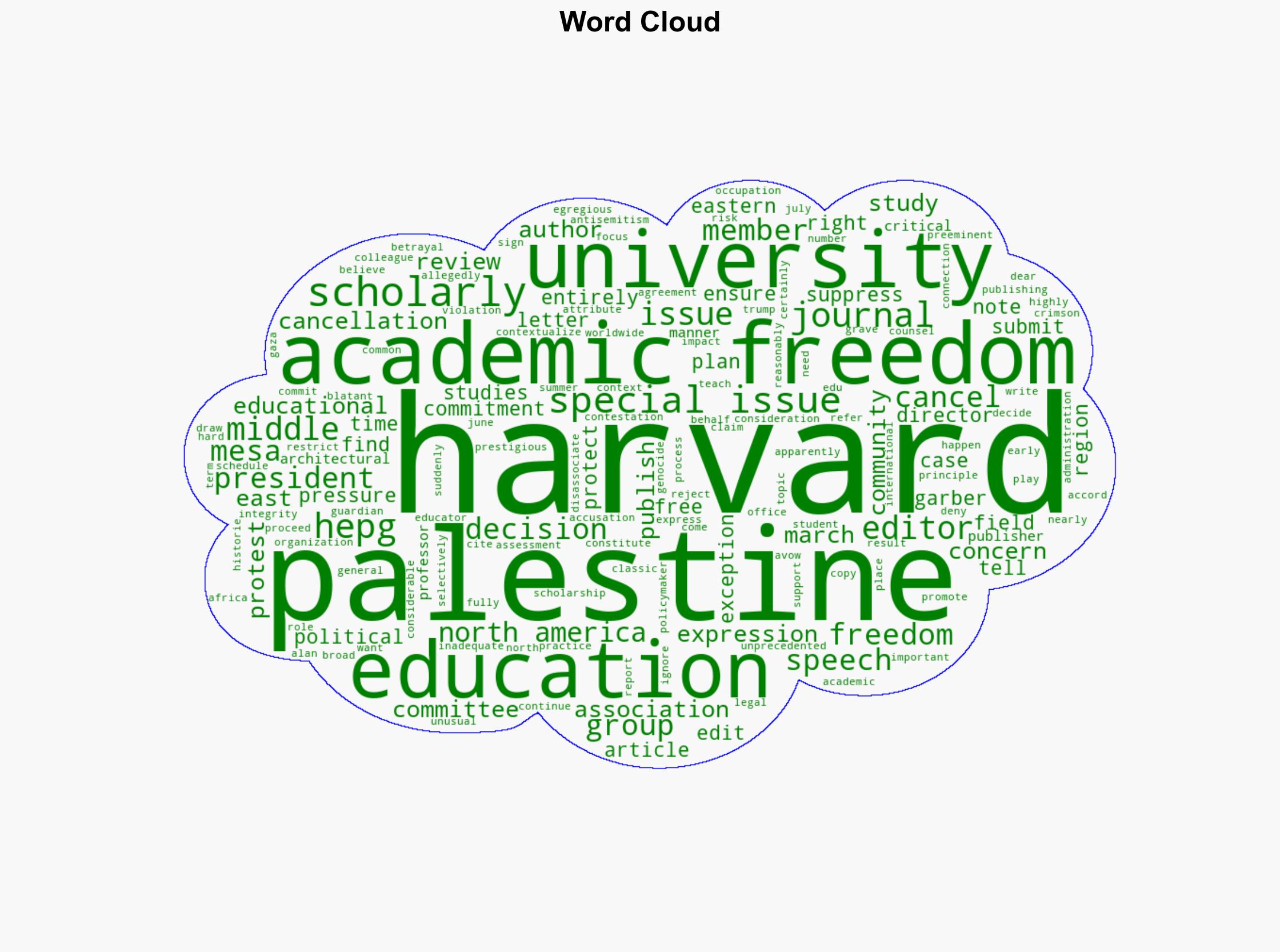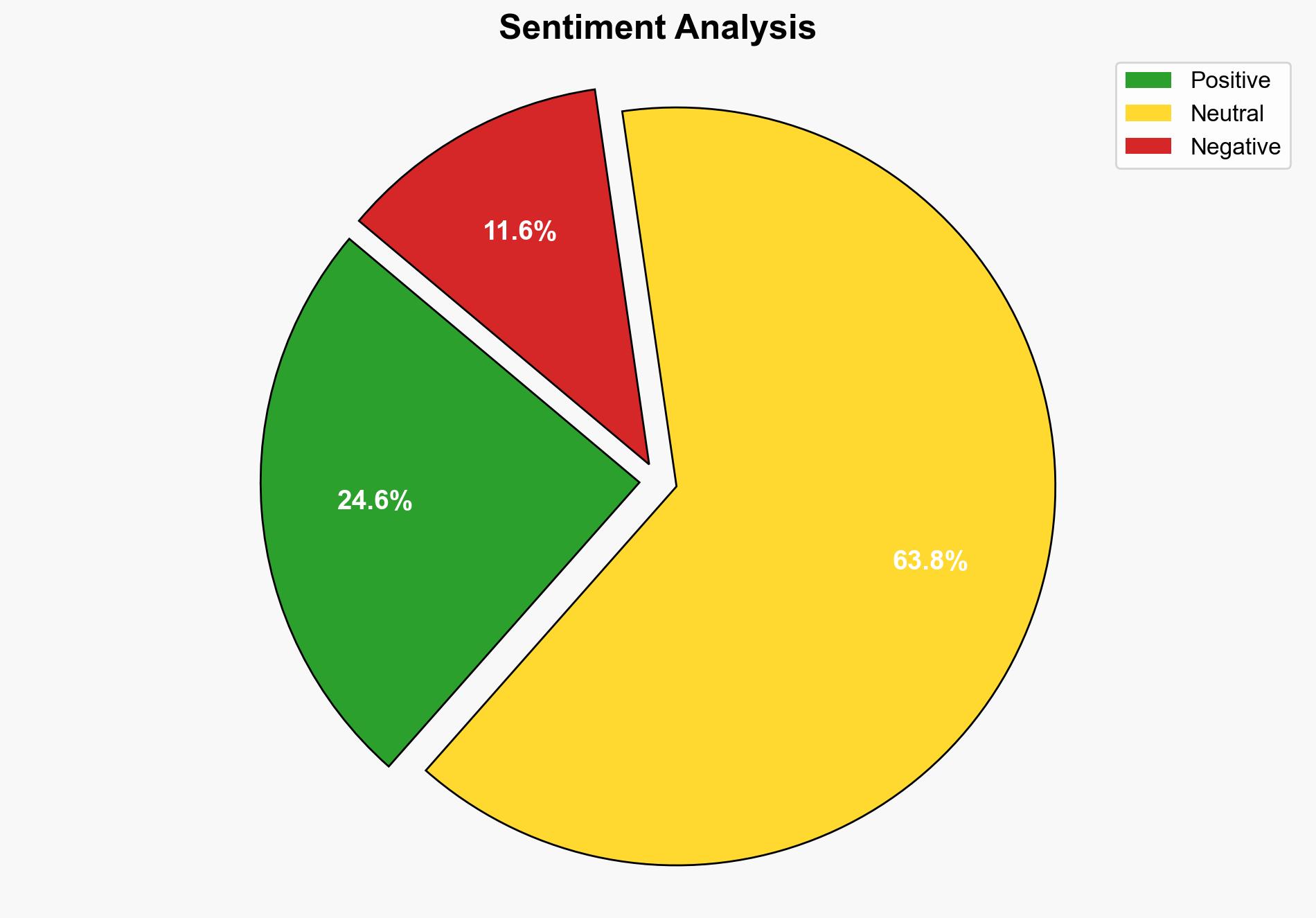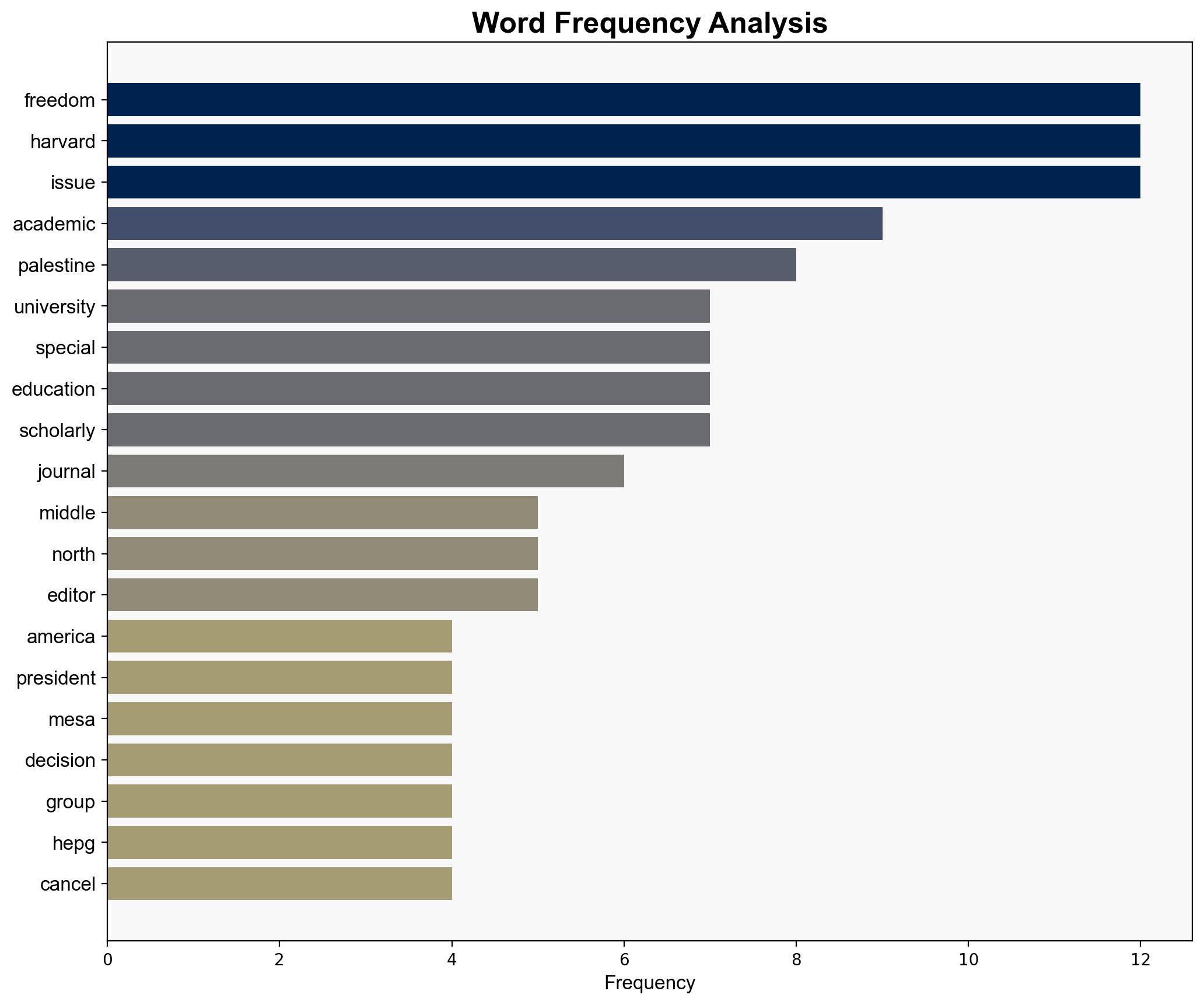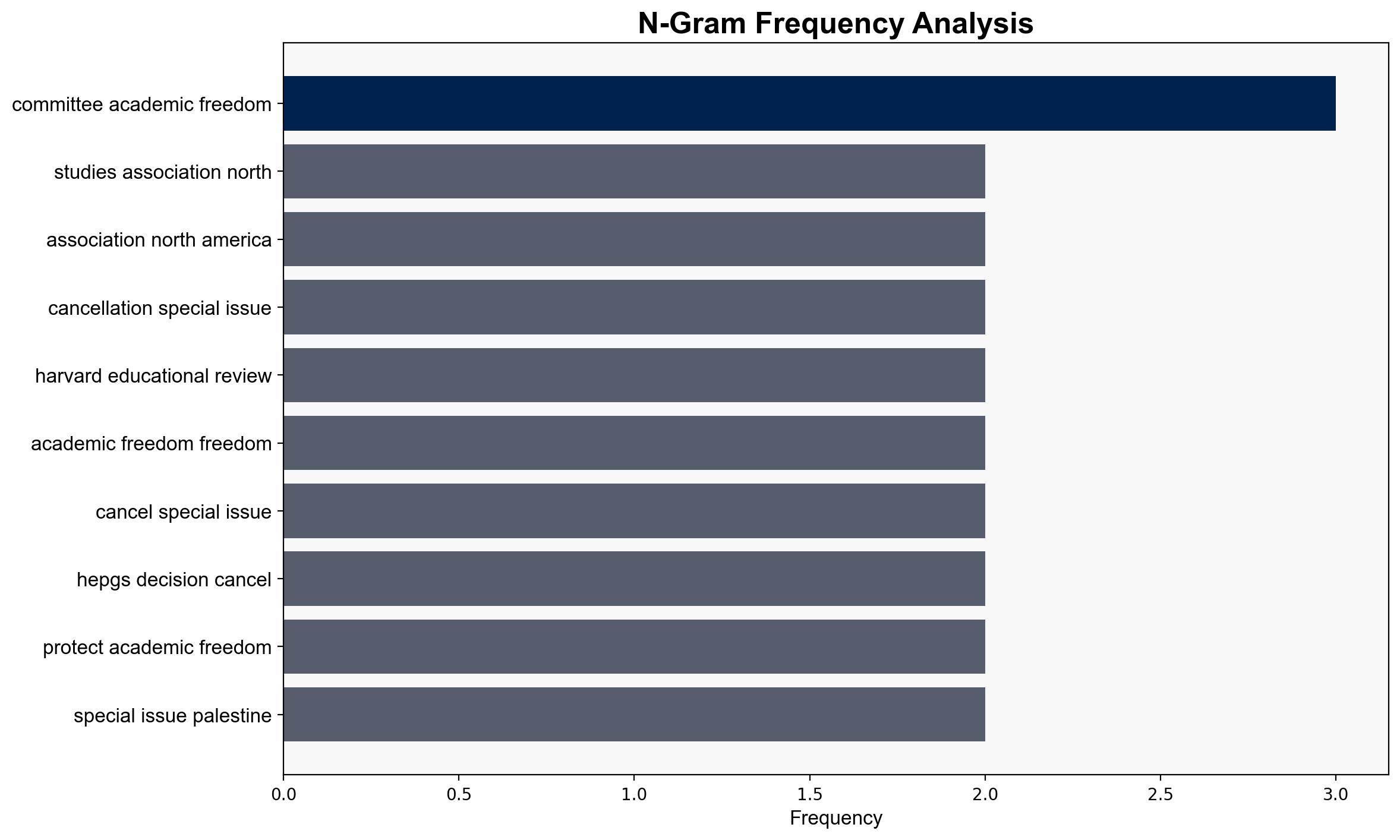Protesting Harvards Cancellation of a Journal issue on Education in Palestine – Juancole.com
Published on: 2025-08-06
Intelligence Report: Protesting Harvard’s Cancellation of a Journal Issue on Education in Palestine – Juancole.com
1. BLUF (Bottom Line Up Front)
The most supported hypothesis is that Harvard’s decision to cancel the journal issue on education in Palestine was influenced by external political pressures, particularly concerning accusations of antisemitism. Confidence in this hypothesis is moderate due to the lack of direct evidence but strong circumstantial indicators. It is recommended that stakeholders engage in dialogue with Harvard to address concerns about academic freedom and explore alternative platforms for the publication.
2. Competing Hypotheses
1. **Hypothesis A**: Harvard’s decision was primarily driven by political pressures and concerns about accusations of antisemitism, leading to the cancellation of the journal issue.
2. **Hypothesis B**: The cancellation was due to legitimate academic and procedural concerns, such as inadequate review processes and the need for extensive copy-editing, independent of political influence.
Using the Analysis of Competing Hypotheses (ACH) 2.0, Hypothesis A is better supported. The timing of the cancellation and the context of external pressures, including those from the Trump administration, align with the narrative of political influence. In contrast, the procedural concerns cited appear less substantiated and more as post-hoc justifications.
3. Key Assumptions and Red Flags
– **Assumptions**: It is assumed that political pressures are significant enough to influence academic decisions at Harvard. It is also assumed that the procedural concerns are not the primary reasons for cancellation.
– **Red Flags**: The absence of detailed evidence supporting the procedural inadequacies raises questions. The reliance on circumstantial evidence for political influence is a potential blind spot.
– **Cognitive Bias**: Confirmation bias may affect interpretations, as stakeholders may selectively focus on evidence supporting their pre-existing beliefs about academic freedom and political influence.
4. Implications and Strategic Risks
The cancellation could set a precedent for external political pressures influencing academic freedom, potentially leading to self-censorship among academic institutions. This scenario risks escalating tensions between academic communities and political entities, potentially impacting international academic collaborations and freedom of expression. The issue may also affect Harvard’s reputation as a bastion of academic freedom.
5. Recommendations and Outlook
- Engage in open dialogue with Harvard to clarify the reasons behind the cancellation and address concerns about academic freedom.
- Explore alternative platforms for publishing the journal issue to ensure the dissemination of scholarly work.
- Scenario-based Projections:
- **Best Case**: Harvard reverses its decision, reinforcing its commitment to academic freedom.
- **Worst Case**: Continued political pressures lead to further cancellations and a chilling effect on academic discourse.
- **Most Likely**: The issue remains unresolved, but alternative publication avenues are pursued.
6. Key Individuals and Entities
– Alan Garber
– Harvard Educational Publishing Group (HEPG)
– Middle East Studies Association (MESA)
7. Thematic Tags
academic freedom, political influence, Middle East studies, publication ethics




